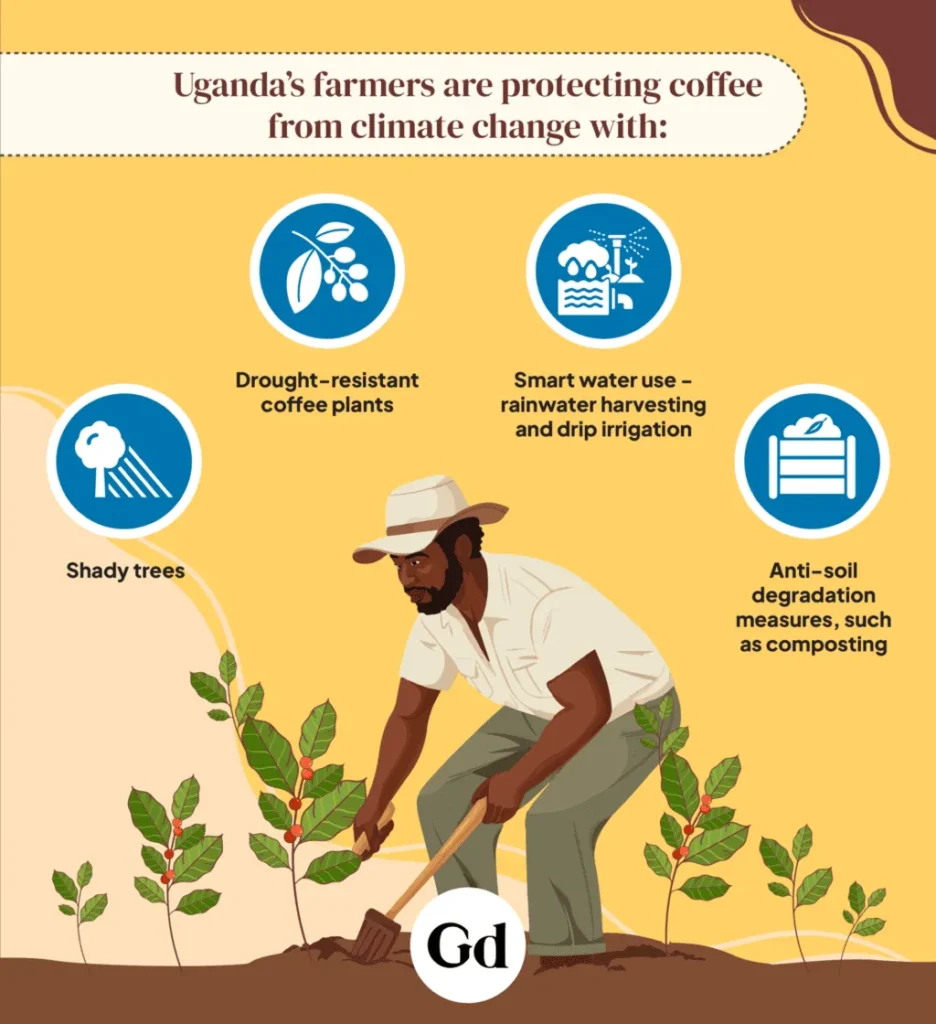In the rolling hills of Uganda’s Luweero district, smallholder coffee farmers are grappling with a silent crisis: climate variability. As temperatures rise and rainfall patterns shift, these farmers are facing unprecedented challenges that threaten their livelihoods and the very essence of their agricultural practices. Yet, a glimmer of hope emerges from a recent study led by Diana Kirungi from Ghent University in Belgium, published in the *International Journal of Agricultural Sustainability*, which translates to *Tijdschrift voor Duurzame Landbouw* in Dutch. The research delves into the perceptions of these farmers and their adoption of climate-smart agriculture technologies (CSATs), offering insights that could reshape the future of sustainable farming.
Kirungi and her team surveyed 226 coffee farming households, uncovering a stark reality: farmers are acutely aware of the changing climate. “The farmers’ perceptions about the increase in temperature and decrease in rainfall align with the available meteorological data,” Kirungi explains. This awareness, however, has not translated into widespread adoption of CSATs. The study identifies key factors that influence the adoption intensity of these technologies, including access to credit, interaction with extension workers, and access to climate information.
The findings suggest that enhancing farmers’ adaptive capacity requires a multi-faceted approach. “Efforts to support smallholder farmers should focus on providing climate information, improving access to credit facilities, and strengthening extension services,” Kirungi emphasizes. These measures could empower farmers to implement multiple CSATs, ultimately boosting their resilience to climate variability.
The implications of this research extend beyond Uganda’s borders, offering valuable insights for the global agricultural community. As climate change continues to disrupt traditional farming practices, the adoption of CSATs becomes increasingly critical. The study highlights the importance of tailored interventions that address the specific needs and perceptions of smallholder farmers.
For the energy sector, the findings underscore the potential for collaboration. As farmers adopt climate-smart practices, there is an opportunity to integrate renewable energy solutions, such as solar-powered irrigation systems, to further enhance sustainability. This synergy could drive innovation and create new commercial opportunities, benefiting both farmers and energy providers.
The research also sheds light on the broader economic impacts of climate variability. By improving farmers’ adaptive capacity, the study suggests, we can mitigate the economic risks associated with climate change. This, in turn, could stabilize food prices, ensure food security, and contribute to the overall economic stability of regions dependent on agriculture.
As the world grapples with the challenges of climate change, the insights from Kirungi’s study offer a roadmap for action. By understanding the perceptions and needs of smallholder farmers, we can develop targeted interventions that enhance their resilience and promote sustainable agricultural practices. The journey towards climate-smart agriculture is complex, but with the right strategies and support, it is a journey we can navigate together.

